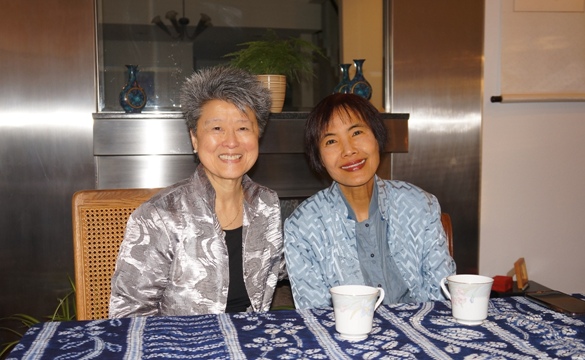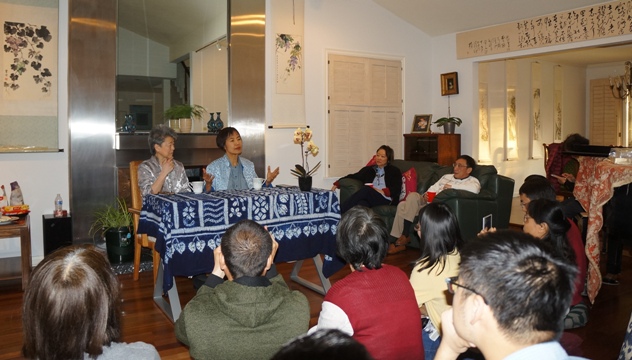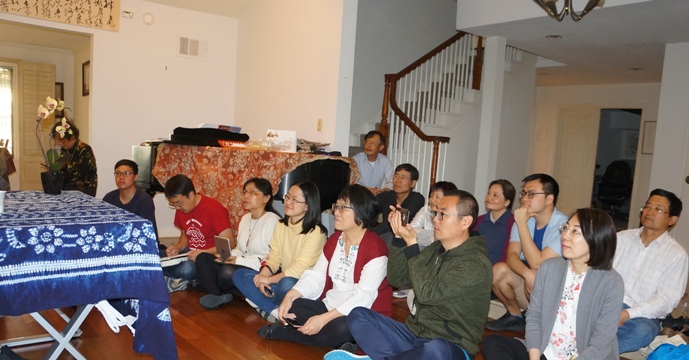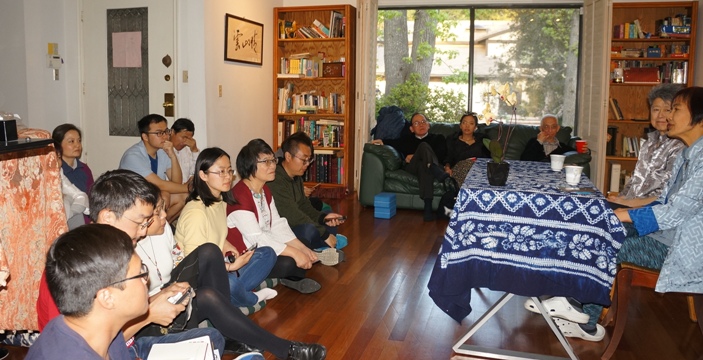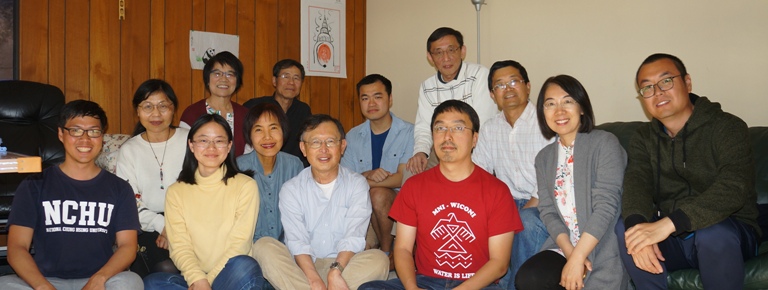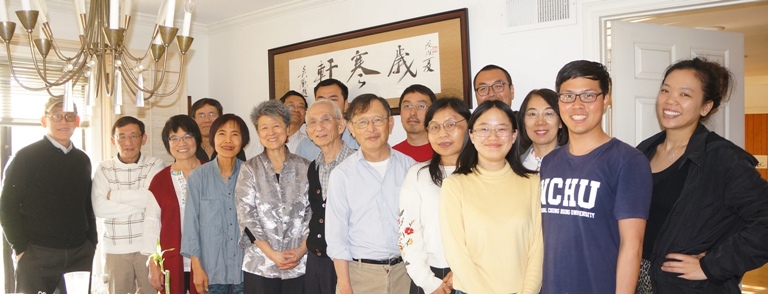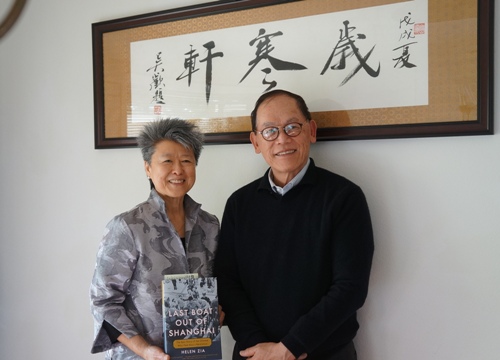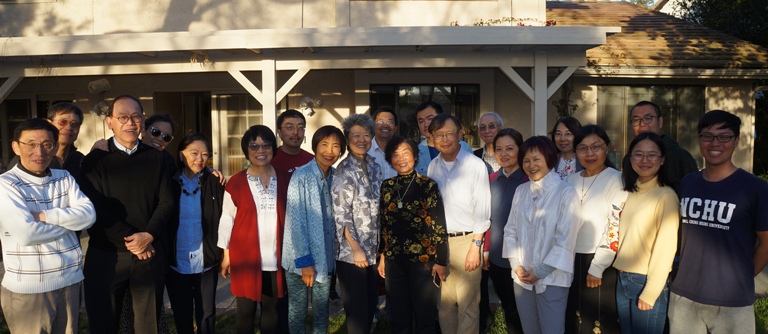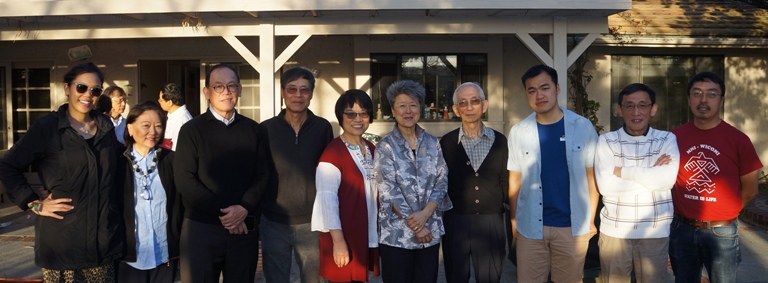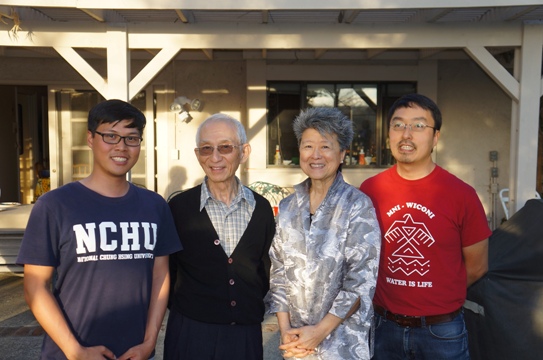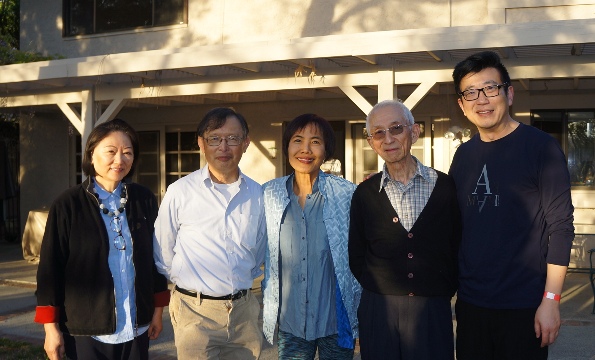Helen Zia talks about her book “Last Boat out of Shanghai” in Los Angeles
On Saturday 4/6/19, UCLA English Department Prof. King-kok Cheung hosted a literary salon featuring author, journalist and Chinese American civic right activist Helen Zia to speak about her most recent book, Last Boat out of Shanghai, on a largely untold story of the 20th Century Chinese Civil War which overlaps with her own Shanghainese heritage. In the course of this talk, Helen also related her more recent history as a pioneer of LGBT rights in the US.
Helen Zia (Left) and Prof. King-kok Cheung (Right)
In addition to being one of the few Chinese Americans growing up in 1960’s New Jersey, Helen also happened to be in the first graduating female class at Princeton University. She would forego a Medical degree and instead move to Detroit to work in the auto industry. Although originally interested in writing about the working class, Helen began to notice the role that race played in injustice as well as an overall lack of political awareness and organization by members of Michigan’s small Asian American community.
In 1960’s America, black and white were the prevailing racial categories one could fall under. Despite many decades of systemic discrimination, those of Asian descent living in America such as Chinese, Japanese, Filipino, etc. were not yet a unified social category. Further, the few advantages of being a “model minority” served as an incentive for many Americans of Asian descent to stay silent and forego the risk of a stronger public voice. For the next several decades, Helen would give voice to a growing awareness of shared interests among Asian Americans while bringing attention to the unjust treatment of fellow Chinese Americans such as Vincent Chin and Wen Ho Lee.
Helen’s most recent work about the Shanghai Exodus looks further back and delves into a more personal chapter of modern Chinese history for which there is surprisingly little published academic research. Nevertheless, this mass exodus resulted in a loss of human capital for China and a de facto benefit to the West via Hong Kong and Taiwan. In many ways, the effects of historical trauma still echoin the minds of Chinese, whether one looks at the Chinese people as a whole, the governmental entities of China, or even among the Chinese diaspora.
When asked about her childhood in China, Helen’s mom, like many 20th Century Chinese parents would cite ‘wartime bad memories’ as an excuse not to talk about this painful span of time. However, at the age of 77 Helen’s mom opened up and for the first time revealed that she was given away by her then father at the age of 6. It turned out that Helen’s mother would recollect an extraordinary amount of detail which laid the groundwork for the interviews and research that culminated in Last Boat Out of Shanghai. In the chaos of war-torn China, families were torn apart, babies were left behind, and last minute travel decisions would determine the course of generations to come.
Meanwhile, Chinese, Japanese, Filipino, and other Asians living in the US experienced different social forces in the form of discrimination by dominant white culture. Despite war between Asian countries during WW2, Asians coming of age in the US underwent their own development as a distinct American people. Helen would undergo her own self realization as a lesbian Asian American woman and go on to meet her life partner, Lea Shigemura. What would have been an unthinkable partnership between recent warring peoples of China and Japan at the time was not a problem between two Asian American individuals.
In Helen’s home, her dad, as in many traditional Chinese families was seen as the all-powerful head of household. Gender roles fell within rigid Confucian lines. Dinner talks were lectures and parents as a rule withheld expressions of approval. In a strange twist, this seemingly inflexible environment meant that the approval of Helen’s dad didn’t matter when it came to Lea since there was no approval to be had to begin with. However his eventual lack of opposition also in a way signaled a tacit consent. When Helen and Lea were legally wed in 2008, Helen’s mother was asked by the media what she thought of this arrangement, to which the elder Zia replied, “I have 6 children, now all have their own families.” ( By: Isaac Chu )
Tony Hsu (Right) with Helen
Issac Chu (Right)
UCLA prof. James Tong (Left 2)

